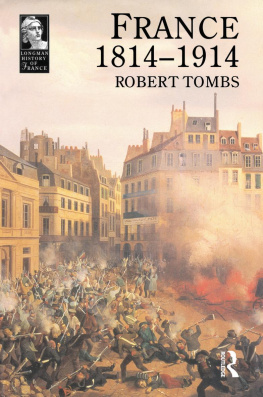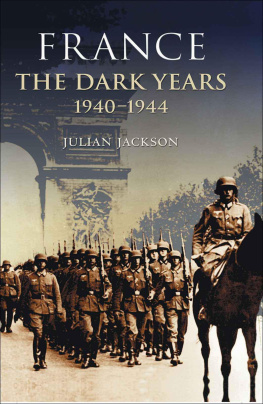
Aerial Propaganda and the Wartime Occupation of France, 19141918
This is an extremely important work that sheds new and revealing light on the role of aerial warfare in the First World War. Dr Wilkins ground breaking research has made a major contribution to the historiography of the Great War and to propaganda studies in general.
David Welch, Director of the Centre for Study of War, Society & Propaganda, University of Kent, UK
Aerial Propaganda and the Wartime Occupation of France, 19141918 explores the combined role played by the French and British Governments and Armies in creating and distributing millions of aerial newspapers and leaflets aimed at the French population trapped behind German lines. Drawing on extensive research and French, German and British primary sources, the book highlights a previously unknown aspect of psychological warfare that challenges the established interpretation that the occupied populations lived in a state of total isolation and that the Allied Governments had no desire to provide them with moral support. Instead a very different picture emerges from this study, which demonstrates that aerial propaganda not only played a fundamental role in raising morale in the occupied territories but also fuelled resistance and clandestine publications. This book demonstrates that the existing historiographical portrayal of the occupied civilian as an uninformed victim must be replaced by a more nuanced interpretation.
Bernard Wilkin is currently lecturer in Modern History at the University of Exeter, UK. His research interests lie primarily in the occupation of France during and after the Franco-Prussian conflict and during the First World War. He has also written on propaganda, fascism and has recently finished a book on the daily life in the French army during the Napoleonic wars.
Routledge Studies in First World War History
Series Editor: John Bourne
The First World War is a subject of perennial interest to historians and is often regarded as a watershed event, marking the end of the nineteenth century and the beginning of the modern industrial world. The sheer scale of the conflict and massive loss of life means that it is constantly being assessed and reassessed to examine its lasting military, political, sociological, industrial, cultural and economic impact. Reflecting the latest international scholarly research, the Studies in First World War History series provides a unique platform for the publication of monographs on all aspects of the Great War. Whilst the main thrust of the series is on the military aspects of the conflict, other related areas (including cultural, visual, literary, political and social) are also addressed. Books published are aimed primarily at a post-graduate academic audience, furthering exciting recent interpretations of the war, whilst still being accessible enough to appeal to a wider audience of educated lay readers.
Forthcoming:
Arming the Western Front: War, Business, and the State in Britain, 19001920
Roger Lloyd-Jones and M. J. Lewis
The Gallipoli Campaign: The Turkish Perspective
Metin Gurcan and Robert Johnson
Available:
The Men Who Planned the War: A Study of the Staff of the British Army on the Western Front, 191418
Paul Harris
German Literature and the First World War: The Anti-War Tradition
Brian Murdoch
British Battle Planning in 1916 and the Battle of Fromelles: A Case Study of an Evolving Skill
Roger Lee
British Infantry Battalion Commanders in the First World War
Peter E. Hodgkinson
Aerial Propaganda and the Wartime Occupation of France, 19141918
Bernard Wilkin
First published 2017
by Routledge
2 Park Square, Milton Park, Abingdon, Oxon OX14 4RN
and by Routledge
711 Third Avenue, New York, NY 10017
Routledge is an imprint of the Taylor & Francis Group, an informa business
2017 Bernard Wilkin
The right of Bernard Wilkin to be identified as author of this work has been asserted by him/her in accordance with sections 77 and 78 of the Copyright, Designs and Patents Act 1988.
All rights reserved. No part of this book may be reprinted or reproduced or utilised in any form or by any electronic, mechanical, or other means, now known or hereafter invented, including photocopying and recording, or in any information storage or retrieval system, without permission in writing from the publishers.
Trademark notice: Product or corporate names may be trademarks or registered trademarks, and are used only for identification and explanation without intent to infringe.
British Library Cataloguing in Publication Data
A catalogue record for this book is available from the British Library
Library of Congress Cataloguing in Publication Data
Names: Wilkin, Bernard, author.
Title: Aerial propaganda and the wartime occupation of France, 19141918 / Bernard Wilkin.
Description: [First edition] | New York, NY : Routledge, [2017] | Series: Routledge studies in First World War history | Includes bibliographical references and index.
Identifiers: LCCN 2016011582| ISBN 9781472472977 (hardback : alk. paper) | ISBN 9781315565804 (ebook)
Subjects: LCSH: World War, 19141918FrancePsychological aspects. | FranceHistoryGerman occupation, 19141918. | Leaflets dropped from aircraftFranceHistory20th century. | World War, 19141918Propaganda. | Propaganda, FrenchHistory20th century. | Propaganda, BritishFranceHistory20th century.
Classification: LCC D544 .W37 2017 | DDC 940.4/88641dc23
LC record available at http://lccn.loc.gov/2016011582
ISBN: 978-1-4724-7297-7 (hbk)
ISBN: 978-1-315-56580-4 (ebk)
Typeset in Bembo
by Out of House Publishing
To Sabine and Phileas
Contents
First and foremost, I would like to express my gratitude to the University of Sheffield and the British Library for providing financial support without which the realisation of this project would have been impossible. My thanks go to Dr Timothy Baycroft, my supervisor at the University of Sheffield, for his constant support, constructive criticism and faith in my project. I am also in debt to Professor Bob Moore, who gave patient assistance and examined the original doctoral thesis, and Professor Peter Jackson, who shared his knowledge of the period with me. None of the maps included in this book would exist without the help of Maude Williams, who sacrificed several evenings to draw the occupied territories.
The support of my family proved essential in overcoming the frustrations associated with writing a book. I cannot thank my father, Ren Wilkin, and my brother, Alexis Wilkin, enough for believing in me throughout these years. I am extremely grateful to my partner, Sabine Grimm, for her endless stream of encouragement, support and kindness and to our toddler, Phileas, for being the best dinosaur impersonator.
In the late war, practically the whole of Belgium and a very large and thickly populated portion of France were for four years in enemy occupation. The inhabitants of these territories had no means of communication with their friends; they were entirely subjected to enemy influence in every detail of their lives. One of the most obvious duties of the propaganda service was therefore to counteract this influence by the dissemination of the truth as to the Allied cause and its progress.











